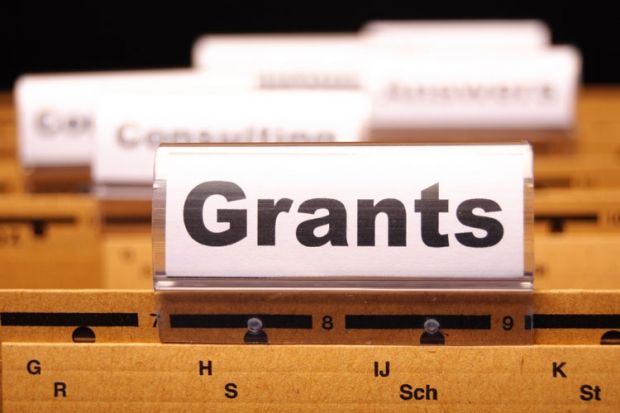Engineering and Physical Sciences Research Council
Research grants
- Award winner: Amanda Coles
- Institution: King’s College London
- Value: £100,748
AI planning with continuous non-linear change
- Award winner: John Collomosse
- Institution: University of Surrey
- Value: £854,808
TAPESTRY: trust, authentication and privacy over a decentralised social registry
- Award winner: Fiona Meldrum
- Institution: University of Leeds
- Value: £457,565
Doped-up: bio-inspired assembly of single crystal nanocomposites
Royal Society
Dorothy Hodgkin Fellowships
- Award winner: Kirsti Ashworth
- Institution: Lancaster University
- Value: £307,099
Air quality impacts of land-atmosphere interactions (AQUILA)
- Award winner: Amy Bonsor
- Institution: University of Cambridge
- Value: £437,156
Planetary systems around evolved stars
- Award winner: Emily Findlay
- Institution: University of Edinburgh
- Value: £517,645
Cathelicidin is Critical for Pathogenic T cell development in multiple sclerosis
- Award winner: Sarah White
- Institution: University College London
- Value: £346,401
Exploring heterogeneity in implicit mentalising and its consequences in autism
Economic and Social Research Council
Research grants
- Award winner: Martin Koppensteiner
- Institution: University of Leicester
- Value: £140,102
The impact of dengue fever in early life on human capital formation
- Award winner: Sarah Bell
- Institution: University of Warwick
- Value: £183,610
The role of natural environments within the emotional geographies of visual impairment
- Award winner: Isabelle Dautriche
- Institution: University of Edinburgh
- Value: £162,197
How learning and using words shapes the structure of the lexicon
In detail
Award winner: Jack Blumenau
Institution: London School of Economics
Value: £184,857
Measuring political debate: responsiveness, influence and rhetoric in parliamentary texts
Most parliamentary debates in the UK pass unnoticed by those outside Westminster. This is regrettable, as parliamentary speech-making is a core democratic responsibility of elected politicians. Furthermore, debates provide MPs with the opportunity to scrutinise government policy and to voice the concerns and interests of their constituents. Recently, there has been a great deal of progress in analysing parliamentary debate, particularly into revealing MPs’ underlying ideological preferences, or estimating the priorities they place on certain policy issues. This project aims to move beyond existing research by developing new ways to extract meaning from the speeches made by politicians. New statistical methodologies will be designed for understanding three features of political speech: how responsive ministers are to the questions that are put to them by backbench MPs; which politicians are influential in parliamentary debates; and how MPs use rhetoric to make their speeches more persuasive. The researcher will focus on analysis of debates from Clement Attlee’s 1945 government through to the end of the 2015 legislative session.
Register to continue
Why register?
- Registration is free and only takes a moment
- Once registered, you can read 3 articles a month
- Sign up for our newsletter
Subscribe
Or subscribe for unlimited access to:
- Unlimited access to news, views, insights & reviews
- Digital editions
- Digital access to THE’s university and college rankings analysis
Already registered or a current subscriber? Login
